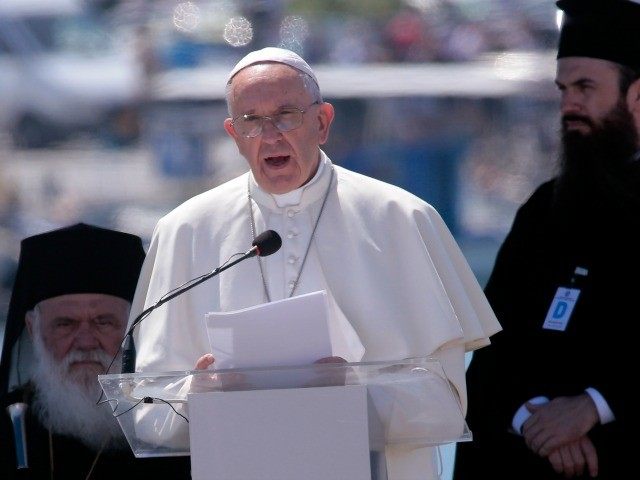In his acceptance speech for the International Charlemagne Prize Friday, Pope Francis decried Europe’s trend toward disintegration and the renewed nationalism of member states, as well as its mishandling of immigration.
Francis said that Europe’s founding fathers were “heralds of peace and prophets of the future” and that their vision of Europe should inspire us “to build bridges and tear down walls,” in evident reference to increased border controls and the construction of fences as a way of dealing with Europe’s migrant crisis.
Officially called the International Charlemagne Prize of Aachen, the award has been described as “the oldest and best-known prize awarded for work done in the service of European unification.”
In his address, the Pope said that the founders’ “new and exciting desire to create unity seems to be fading” and that “we, the heirs of their dream, are tempted to yield to our own selfish interests and to consider putting up fences here and there.”
While praising the Europe of generations past, Francis offered no encomium to the Europe of 2016, which he said is “weary, aging, no longer fertile and vital,” lamenting that the “great ideals that inspired Europe seem to have lost their appeal.”
“There is an impression,” the Pontiff continued, “that Europe is declining, that it has lost its ability to be innovative and creative, and that it is more concerned with preserving and dominating spaces than with generating processes of inclusion and change.”
On the contrary, in his glowing speech commending Pope Francis for his reception of the award, European Council President Donald Tusk said that the Pope had given the world a Church “which inspires only good feelings, and – never, nowhere and in no-one – fear, contempt or anger.”
“We can be proud of Europe,” Tusk said to the Pope, because “Europe still resembles you.”
“If it stops resembling you, it will be reduced to a mere geographical term and a political void,” he said.
“Simply speaking,” Tusk concluded, “Holy Father, you are the Pope of Hope. For all of us.”
Pope Francis had no such optimistic words to offer to his hearers, but wondered aloud what had happened to the Europe of past centuries.
“What has happened to you, the Europe of humanism, the champion of human rights, democracy and freedom? What has happened to you, Europe, the home of poets, philosophers, artists, musicians, and men and women of letters? What has happened to you, Europe, the mother of peoples and nations, the mother of great men and women who upheld, and even sacrificed their lives for, the dignity of their brothers and sisters?
Still, despite his lengthy chastisement, Pope Francis attempted to end on a word of encouragement, painting a vision of his “dream” for the Europe of the future.
“I dream of a new European humanism,” he said, one that involves “a sound and humane utopian vision.”
“I dream of a Europe that is young, still capable of being a mother: a mother who has life because she respects life and offers hope for life.”
“I dream of a Europe that cares for children, that offers fraternal help to the poor and those newcomers seeking acceptance because they have lost everything and need shelter.”
“I dream of a Europe of families, with truly effective policies concentrated on faces rather than numbers, on birth rates more than rates of consumption,” he said.
Follow Thomas D. Williams on Twitter Follow @tdwilliamsrome

COMMENTS
Please let us know if you're having issues with commenting.